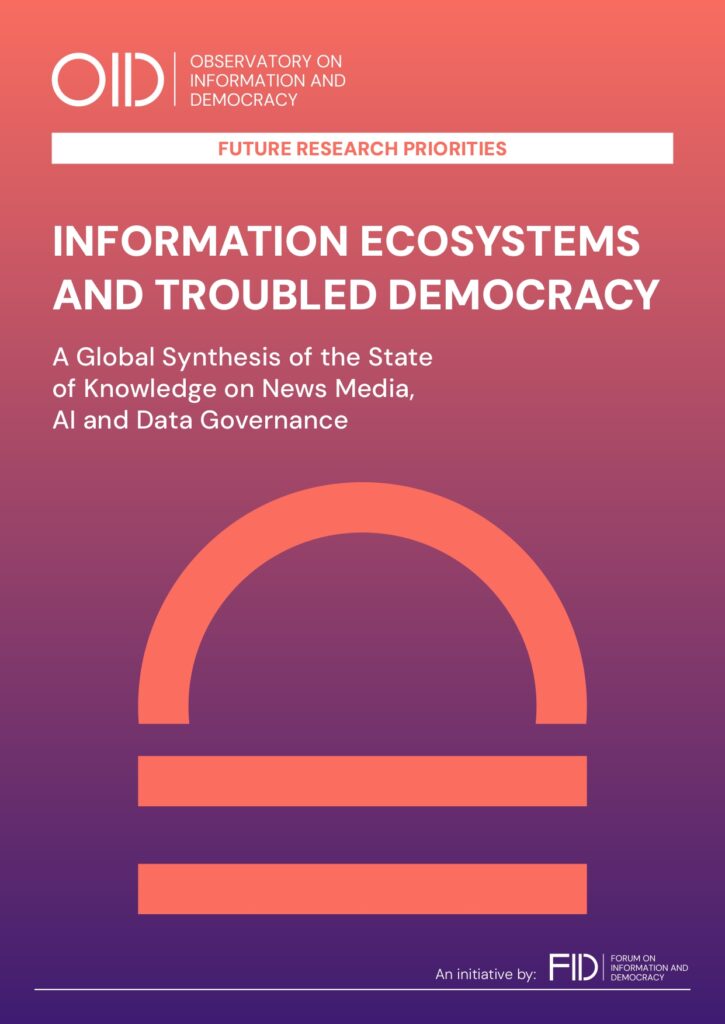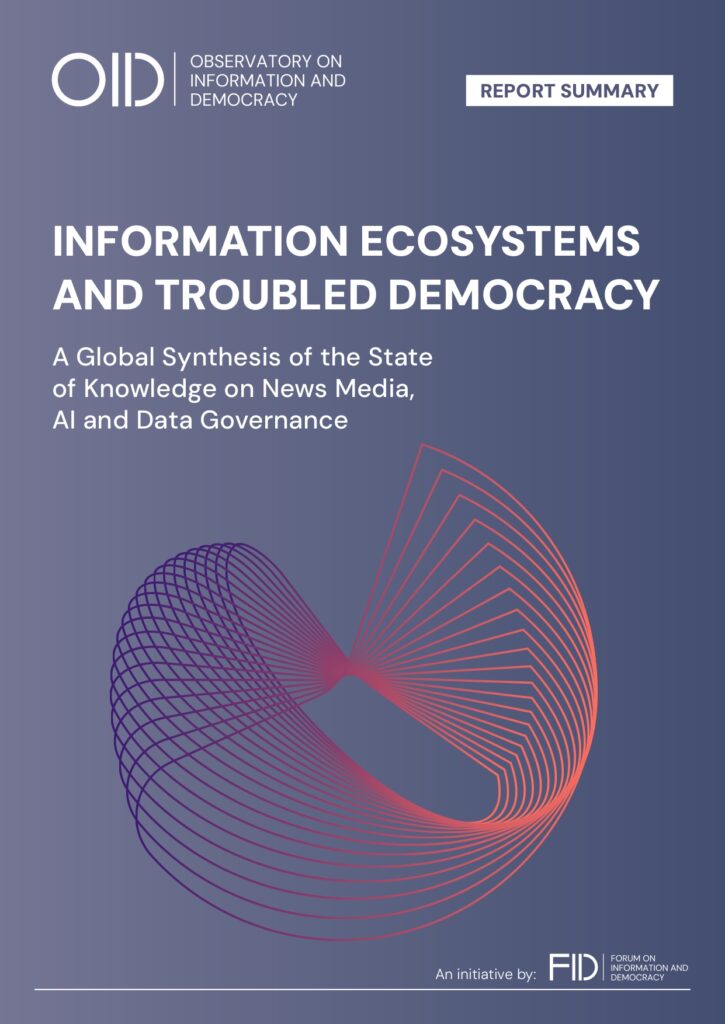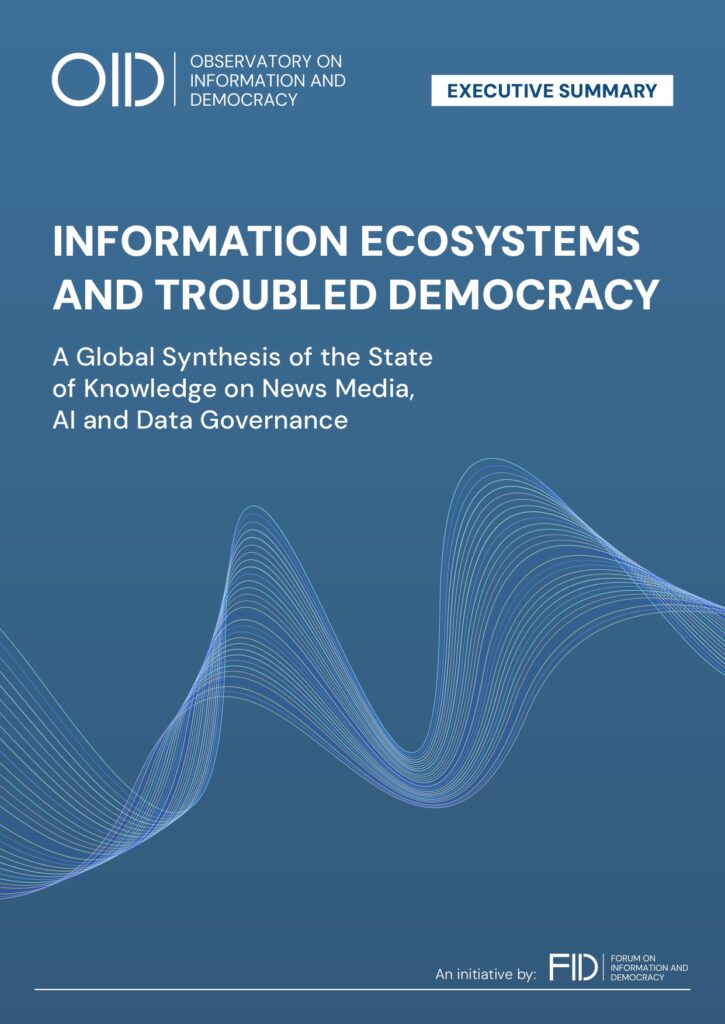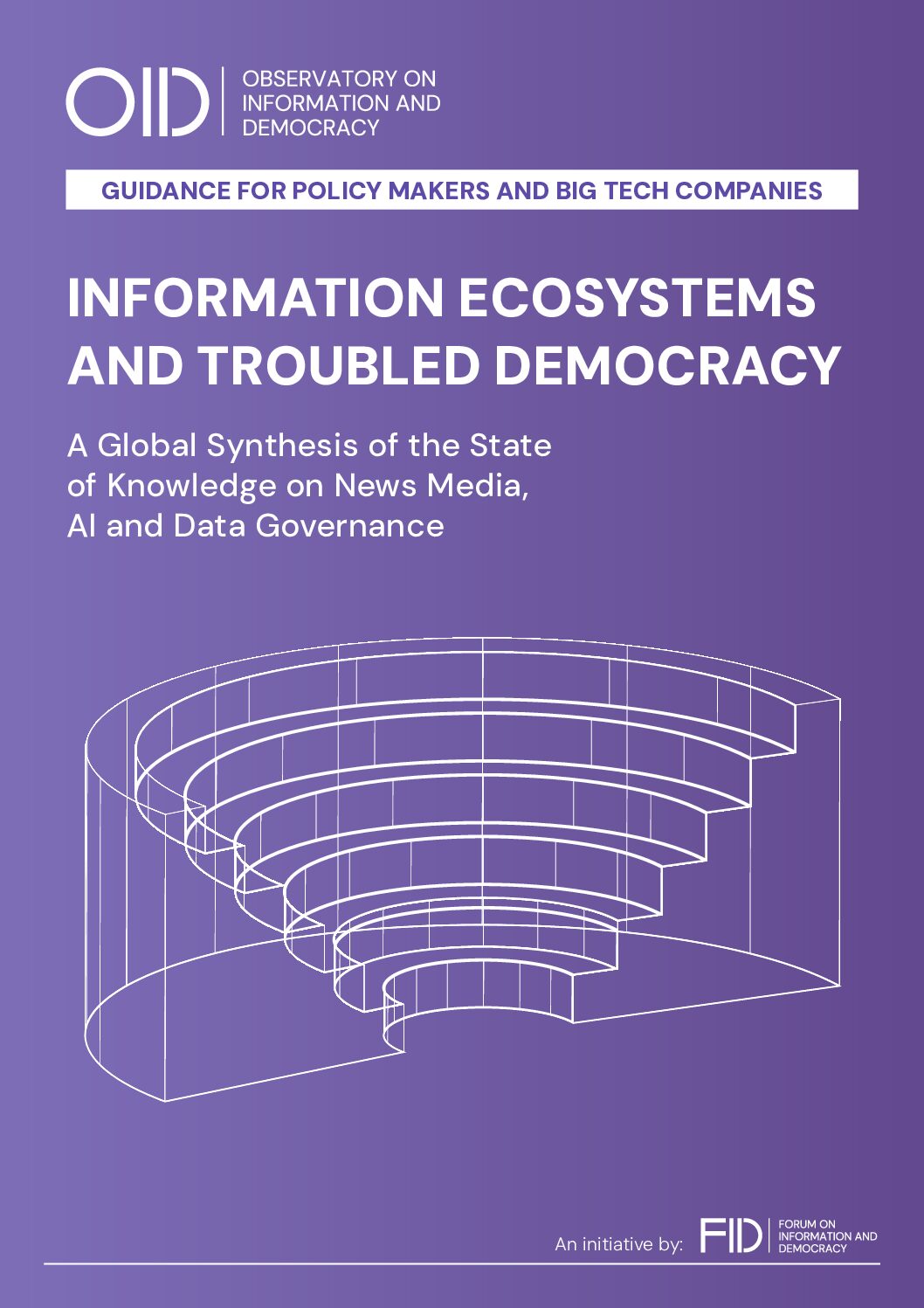Report summary
Information ecosystems and troubled democracy: Research Priorities

Research Priorities
This summary outlines key research priorities drawn from the Observatory on Information & Democracy’s comprehensive analysis of cutting-edge research across multiple disciplines, supported by 1,664 citations. The analysis centers on three main areas: Media, Politics, and Trust; Artificial Intelligence, Information Ecosystems, and Democracy; and Data Governance and Democracy, all interconnected by the overarching challenge of mis- and disinformation.
This document provides a roadmap for future fundamental research questions across the following issues:
- Datafication for Profit
- Human Rights & Fundamental Freedoms
- Information Ecosystems: Exclusions and inequitable inclusions
- Governing for Transparency and Accountability
- Media and information literacy (MIL) and AI literacy
- Dominance of Research from the Global North
Other summaries
Other summaries

Écosystèmes de l’Information et Menaces à la Démocratie: Résumé Exécutif

Information Ecosystems and Troubled Democracy: Report Summary
The three-page summary of the Observatory’s Global Assessment Report provides a concise overview of its findings and recommendations. It highlights the importance of focusing on information ecosystems, which shape public discourse, political processes, and institutional resilience, while addressing challenges like mis- and disinformation.
The summary distills insights into three key areas:
- News Media, Politics, and Trust – Changes to the media ecosystem and strategies to promote information and democratic integrity.
- Artificial Intelligence and Democracy – The role of AI in content governance and its impact on democratic processes and human rights.
- Governing Information Ecosystems – Addressing Big Tech’s power and fostering equitable, transparent data practices.
It concludes with actionable recommendations for governments, companies, and civil society to enhance accountability and resilience in information ecosystems. A chapter guide offers a roadmap to navigate the report’s key themes from covering core concepts (Chapter 1) to combating disinformation (Chapter 7) and advancing data justice (Chapter 8).

Information Ecosystems and Troubled Democracy: Executive summary
In this Executive Summary, we emphasize that the Observatory’s first global assessment understands information ecosystems as the result of human decisions and actions rather than inevitable outcomes of technological change. The report focuses on the interplay between evolving information ecosystems, the public sphere, and democracy, treating the harms associated with mis- and disinformation as both symptoms and amplifiers of broader societal transformations.
Beginning with Chapter 1, the report establishes core themes and defines key concepts, setting the stage for a critical exploration of existing research. Chapters 2 through 4 delve into the three primary themes: the role of media in the public sphere, the impact of AI systems on democracy, and the governance of data in the face of Big Tech power.
Chapters 5 through 8 expand the focus to cross-cutting issues such as public understanding of mis- and disinformation, literacy training, governance frameworks, practical interventions against disinformation, and pathways to achieving data justice. The summary concludes with Chapter 9, synthesizing insights, identifying research gaps, and offering actionable recommendations for both governments and tech companies to guide future policy and practice.

Information Ecosystems and Troubled Democracy: Guidance for Policy Makers and Big Tech Companies
This summary explores research-based guidance for big tech companies and policymakers to align information ecosystems with international human rights commitments, without prescribing specific recommendations.
The guidance covers governance approaches and shifts in how policymakers understand issues like information integrity, the role of technology, the harms of mis- and disinformation, and the impact of power dynamics on trust in the public sphere. It also recognizes the challenges of addressing corporate power and polarized publics.
The summary emphasizes the need for collaborative efforts across corporations, governments, civil society, philanthropies, and academia to foster equity and justice in 21st-century information ecosystems.